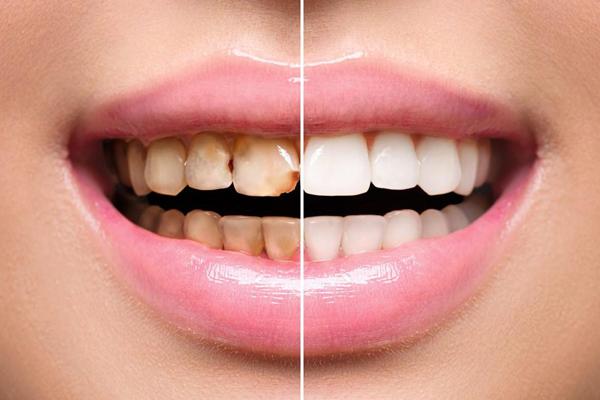Laminates

Dental laminates, also known as dental veneers or porcelain veneers, are thin shells made of dental ceramic material that are custom-made and bonded to the front surface of teeth. They are primarily used to enhance the appearance of teeth by improving their color, shape, size, or alignment.
Here are some key points about dental laminates:
1. Purpose: Dental laminates are primarily used for cosmetic purposes. They can address a range of dental concerns, including stained or discolored teeth, chipped or broken teeth, gaps between teeth, misshapen teeth, and slightly crooked teeth.
2. Material: Dental laminates are typically made of porcelain or a composite resin material. Porcelain veneers are known for their durability, stain resistance, and natural appearance, closely resembling the translucency and color of natural teeth.
3. Procedure: The process of getting dental laminates usually involves multiple visits to the dentist. During the initial visit, the dentist will examine your teeth, take impressions, and discuss your desired results. The teeth may be prepared by removing a small amount of enamel to make space for the veneers. Temporary veneers may be placed while the permanent ones are being fabricated in a dental laboratory. In a subsequent visit, the dentist will bond the veneers to your teeth using dental cement.
4. Benefits: Dental laminates can provide a variety of benefits. They can significantly improve the appearance of your teeth, creating a more aesthetically pleasing smile. They are also resistant to stains from coffee, tea, and other substances. In addition, laminates are known for their longevity and can last for many years with proper care.
5. Care and Maintenance: It is important to maintain good oral hygiene practices even with dental laminates. This includes brushing your teeth twice a day, flossing daily, and visiting your dentist regularly for check-ups and professional cleanings. While dental laminates are highly durable, they can still be subject to damage from excessive force, such as biting on hard objects or grinding your teeth. It is advisable to avoid these habits to prolong the lifespan of your veneers.
It’s important to note that the information provided here is general in nature. If you are considering dental laminates or any other dental procedure, it is best to consult with a qualified dentist who can assess your specific situation and provide personalized recommendations.
Frequently Asked Questions
1Q. Is Lamination good for your teeth?
Ans: Finedent Dental Clinic, situated in Nanakramguda, Hyderabad, assures the safety and efficacy of dental laminates, providing a reliable cosmetic solution while prioritizing the overall health of your teeth.
2Q. How long do teeth laminates last?
Ans: At Finedent Dental Clinic in Nanakramguda, Hyderabad, teeth laminates are crafted to last 10-15 years or more with proper care, ensuring a durable and long-lasting enhancement to your smile.
3Q. What are the benefits of laminating?
Ans: Experience the aesthetic advantages of laminating your teeth at Finedent Dental Clinic in Nallagandla, Hyderabad, where color correction and shape enhancement contribute to a natural-looking, resilient smile, boosting confidence and self-esteem.
4Q.How much does teeth lamination cost in India?
Ans: Finedent Dental Clinic in Nallagandla, Hyderabad, offers teeth lamination at varying costs, typically ranging from INR 8,000 to INR 20,000 per tooth. The exact price depends on factors such as material selection, clinic location, and the complexity of the procedure.
